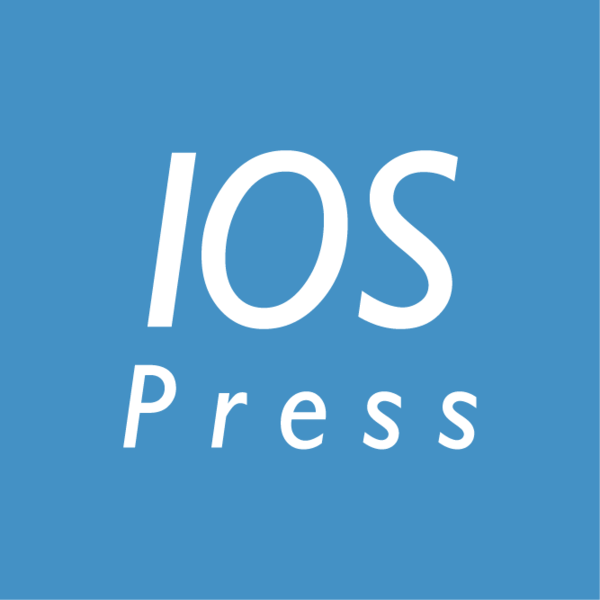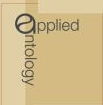Applied Ontology has migrated to a new Editorial Manager submission peer review platform. We ask that authors of new submissions will direct their paper to the new platform.
Link to access the Editorial Manager site: https://www.editorialmanager.com/ao/default2.aspx.
Aims & Scope
In recent years, the dramatic growth of information and communication technologies has led to an increasingly interdisciplinary approach to research and development activities in these fields. To exploit the immense opportunities of widespread networks effectively, designers of modern information systems need to combine the precision of formal semantics with the needs of cognitive transparency, as they incorporate increasingly sophisticated and heterogeneous information content. The recent explosion of interest on ontologies is an important component of this trend. Researchers in disciplines such as knowledge engineering, information systems modeling, artificial intelligence, formal and computational linguistics, information retrieval, library science, and knowledge management have come to realize that a solid foundation for their research calls for serious work in ontology, understood as a general theory of the types of entities and relations that make up their respective domains of inquiry. In all these areas, attention has started to focus squarely on the content of information, rather than on just the formats and languages used to represent that content.
Applied Ontology focuses on information content in its broadest sense. As the subtitle makes clear, two broad kinds of content-based research activities are envisioned: ontological analysis and conceptual modeling. The former includes any attempt to investigate the nature and structure of a domain of interest using rigorous philosophical or logical tools; the latter concerns the cognitive and linguistic structures we use to model the world, as well as the various analysis tools and methodologies we adopt for producing useful computational models, such as information systems schemes or knowledge structures.
Applied Ontology is the first journal with an explicit and exclusive focus on ontological analysis and conceptual modeling under an interdisciplinary view. It aims to establish a unique niche in the realm of scientific journals by carefully avoiding unnecessary duplication with discipline-oriented journals. For this reason, authors will be encouraged to use language that will be intelligible also to those outside their specific sector of expertise, and the review process will be tailored to this end. For example, authors of theoretical contributions will be encouraged to show the relevance of their theory for applications, while authors of more technological papers will be encouraged to show the relevance of a well-founded theoretical perspective. Moreover, the journal will publish papers focusing on representation languages or algorithms only where these address relevant content issues, whether at the level of practical application or of theoretical understanding. Similarly, it will publish descriptions of tools or implemented systems only where a contribution to the practice of ontological analysis and conceptual modeling is clearly established.
Applied Ontology aims at being a major publication forum for theoretical and applied research in a variety of topics, tentatively grouped together in research areas, examples of which are indicated in the list below.
Foundational issues
- Philosophical foundations of ontology
- Basic ontological categories and relations
- Ontology, epistemology, and semiotics
Specialized ontologies
- Ontology of time, events and processes
- Ontology of space and geography
- Ontology of physics and physical objects
- Ontology of biomedicine
- Ontology of mental entities
- Ontology of agents and actions
- Ontology of organizations and social reality
- Ontology of the information society
- Ontology of business and e-commerce
- Ontology of law
- Ontology of history, culture, and evolution
Ontology development and ontology-driven conceptual modeling
- Methodologies for ontology development
- Impact of ontological analysis on current modeling practices
- Best-practice examples and case studies
Ontology management
- Tools for ontology development, analysis, and comparison
- Comparison and evaluation of ontologies
- Ontology management, maintenance, versioning
- Methodologies for ontology merging, alignment, and integration
- Semantic Web
Ontology and language
- Ontology and natural-language semantics
- Ontology and lexical resources
- Ontology and terminology
- Ontology learning techniques and their evaluation
- Role of ontology in natural-language systems
Ontology, cognition, perception
- Conceptual schemas, perceptual invariances, and ontological categorization
- Psychological experiments evaluating the cognitive adequacy of ontological categories
Ontology and content standards
- Library science
- Knowledge organization
- Museums and cultural repositories
- Multimedia content
- Product descriptions
- Process and service descriptions
- Biomedical and other scientific terminologies
Innovative ontology-based applications
Abstracted/Indexed in
- Academic Source Complete
- ACM Digital Library
- Compendex
- DBLP Bibliography Server
- Google Scholar
- Microsoft Academic Search
- Scopus
- Ulrich's Periodicals Directory
- Web of Science: Current Contents/Engineering
- Web of Science: Journal Citation Reports/Science Edition
- Web of Science: Science Citation Index-Expanded (SciSearch®)
The Publisher
Applied Ontology is published by IOS Press. IOS Press is a leading international publisher of scientific books and journals in many fields including computer & communications sciences and especially also the Semantic Web. Visit the Applied Ontology Journal at IOS Press.
IOS Press is a leading international publisher of scientific books and journals in many fields including computer & communications sciences and especially also the Semantic Web. Visit the Applied Ontology Journal at IOS Press.

